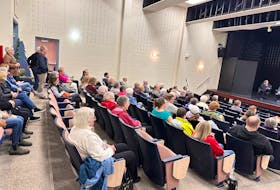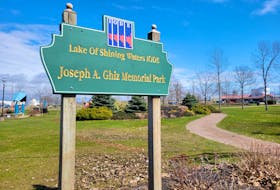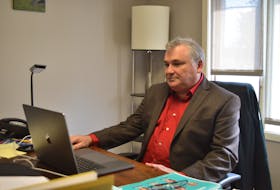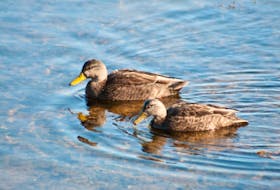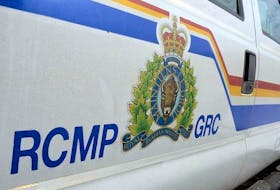Two Island teenagers head out for a canoe ride on a summer evening and don't return home.
When the families wake up the next morning and realize the two teens are missing, one of the first calls is usually to police.
And while RCMP are integral in locating missing persons, the police agency often calls on the resources of a volunteer group dedicated to searching.
"Naturally, they'd call us and it's our job to find them," said Ken Hall, president of P.E.I.'s ground search and rescue during an interview Saturday.
The fabricated scenario, which was typical of the incidents handled by the association, was used during a lengthy exercise held on Saturday at King's Castle Provincial Park outside Murray River.
The exercise, which also included search teams from New Brunswick and Nova Scotia, as well as RCMP and two fire departments, aimed at sharpening the skills used by searchers in the region.
It saw shoreline and inline searches, as well as using canoes and the Civil Air Search and Rescue Team.
"It gives us a chance to test our equipment and test how well we work with each other," said Hall, noting that the P.E.I. team usually holds smaller scale training more than 10 times a year. "There have been occasions where P.E.I. Ground Search and Rescue has gone to New Brunswick as well as Nova Scotia. So we like to do this just to enhance our skills of working with different agencies."
Volunteer Arja Page, said having the communication and co-ordination skills already in place makes it that much easier when dealing with a real scenario.
"A lot of times people think you just go out and it's a random search but there's very much a science to it," said Page.
It's also one of the reasons why the association has previously asked the public to stay away from areas being searched.
While the intentions may be well-meaning, it can hinder the search already underway.
"If you have people who are untrained going out and not working as part of the system it can cause a lot of interference and can affect the integrity of clues in the search area," said Page. "There are a lot of different moving parts and its important to see how the moving parts work together. They're all co-ordinated for a specific task."
Page, who's been a volunteer for the past six years said it's a desire to help the community that leads many members to join the association.
"In P.E.I., it's a tight community, so when there's someone in trouble, you want to be able to go out and offer assistance."
Two Island teenagers head out for a canoe ride on a summer evening and don't return home.
When the families wake up the next morning and realize the two teens are missing, one of the first calls is usually to police.
And while RCMP are integral in locating missing persons, the police agency often calls on the resources of a volunteer group dedicated to searching.
"Naturally, they'd call us and it's our job to find them," said Ken Hall, president of P.E.I.'s ground search and rescue during an interview Saturday.
The fabricated scenario, which was typical of the incidents handled by the association, was used during a lengthy exercise held on Saturday at King's Castle Provincial Park outside Murray River.
The exercise, which also included search teams from New Brunswick and Nova Scotia, as well as RCMP and two fire departments, aimed at sharpening the skills used by searchers in the region.
It saw shoreline and inline searches, as well as using canoes and the Civil Air Search and Rescue Team.
"It gives us a chance to test our equipment and test how well we work with each other," said Hall, noting that the P.E.I. team usually holds smaller scale training more than 10 times a year. "There have been occasions where P.E.I. Ground Search and Rescue has gone to New Brunswick as well as Nova Scotia. So we like to do this just to enhance our skills of working with different agencies."
Volunteer Arja Page, said having the communication and co-ordination skills already in place makes it that much easier when dealing with a real scenario.
"A lot of times people think you just go out and it's a random search but there's very much a science to it," said Page.
It's also one of the reasons why the association has previously asked the public to stay away from areas being searched.
While the intentions may be well-meaning, it can hinder the search already underway.
"If you have people who are untrained going out and not working as part of the system it can cause a lot of interference and can affect the integrity of clues in the search area," said Page. "There are a lot of different moving parts and its important to see how the moving parts work together. They're all co-ordinated for a specific task."
Page, who's been a volunteer for the past six years said it's a desire to help the community that leads many members to join the association.
"In P.E.I., it's a tight community, so when there's someone in trouble, you want to be able to go out and offer assistance."

